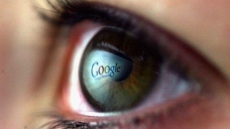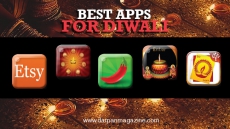TORONTO — Hype for mobile payments is growing but Canadians generally aren't very eager to pay for purchases with their smartphones, suggests a new report.
Canadians are still apprehensive about using their phone in lieu of cash, debit or credit cards, according to a study by global research company GfK, which conducted online surveys with consumers in 17 countries.
Although Canadians have developed a reputation for being keen early adopters of technology, they were found to be among the least interested in mobile payments.
Security fears are a factor, says Stephen Popiel, vice-president of consulting for GfK Canada. Canadians may also be lukewarm on mobile payments since they already have plenty of ways to pay in stores.
"The ATM infrastructure is huge and profound in Canada, even when compared with the United States, so the mobile technology itself is partly a solution for a problem that's not as big of an issue here. We have a seamless ATM and debit card structure here and now the tap technology makes it fast and easy to make a lot of small purchases," says Popiel.
"Now we have to train ourselves: don't use the wallet, pull out my phone, make sure the app is open. We have to get to a position where this technology is as seamless and easy to use as what we've been using for the past 15 to 20 years."
GfK estimates only about two per cent of transactions in Canada are currently made with a mobile device, either in store or while online shopping at home.
About 21 per cent of the 1,000 Canadians polled by GfK said they had made a mobile payment in the past six months, compared to 24 per cent of western European respondents, 33 per cent of American respondents, and 39 per cent of Latin American respondents.
Mobile payments were seen to be far more popular in Asia, with 83 per cent of Chinese respondents and 62 per cent of Korean respondents saying they had used a mobile device for a purchase recently.
Of the Canadians polled, about one in three agreed with the statement "mobile payment is more of a gimmick today than a major way I pay" and four in 10 thought "mobile payment technology is still clunky."
Just over half said they were concerned about the security of mobile payments and putting their personal information at risk.
While Starbucks customers are frequently seen using their phones to pay for coffees, and Tim Hortons also accepts mobile payments, those apps are linked to gift cards rather than bank accounts and are less of a security concern, notes Popiel.
"There's still a large percentage of the population who are worried about privacy, worried about information disclosure, and what's the worst that's going to happen with their TimmyMe app? They're going to know I like a double-double? And I run the risk of losing $50 of coffee money," he says.
"The concern for many people is if my entire bank account is linked to this system, that's where security breaches are more profound."
Popiel believes the Apple Pay platform could spark more interest in mobile payments — if and when it comes to Canada. Currently available in the U.S., Apple Pay allows consumers to pay for purchases at a number of big-name stores including McDonalds, Subway and Whole Foods with newer iPhones and iPads.
"The degree to which Apple manages to convince people that they have that safe and secure system is going to determine whether (adoption) increases," says Popiel.
"If they do, it's going to be a spectacular change, not only in mobile payments, but certainly for Apple as well, as people are going to migrate back to iPhones, away from Android, so they can get that safe and secure mobile wallet."
The polling industry's professional body, the Marketing Research and Intelligence Association, says online surveys cannot be assigned a margin of error as they are not a random sample and therefore are not necessarily representative of the whole population.





